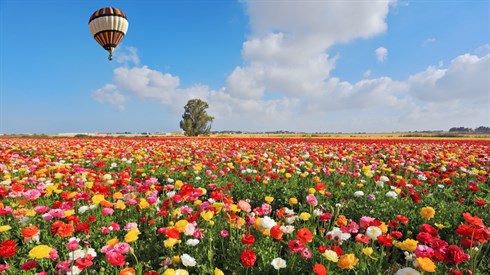33
In the weekly Shabbat, the person is the main focus of the cessation of work. In contrast, during the seventh year, the focus is on the land. Admittedly, the Torah commands the individual to refrain from agricultural activities, but most agricultural activities are forbidden only Rabbinically even at times when shemitta applies based on Torah law.
The p’sukim also stress that during this year of "rest for the land," all of those who live in the land, including non-land-owners, foreigners, and animals who inhabit it, are to benefit from the land’s fruit. (The specific halachot that relate to this are beyond our scope.)
On the weekly Shabbat, sanctity of the day itself impacts our behavior on the day, so that our work desecrates the day. What is the parallel application regarding the seventh year’s sanctity? The Ramban says that it creates a mitzva to eat the produce that grew on its own during the year. Several other great authorities (possibly including Rav A.Y. Kook – see Shabbat Haaretz, appendix 21) follow this approach.
Based on this approach, we can continue the thought and say that because that which grows in the seventh year is holy, it is a mitzva to eat it. We can even say that since the Land is especially dedicated to Hashem, eating its produce is like "eating from Hashem’s table." This is a term that comes up in the gemara regarding eating the parts of korbanot that are permitted for man (see some applications in Beitza 21a).
If the produce becomes holy due to the similarity between Shabbat and the shemitta year, we understand why our parasha stresses the eating more than the prohibitions on a person’s work. There is also a similar stress concerning the fruit that grows during the yovel (jubilee) year (see Vayikra 25:12).
The technical solution, which is still a national necessity concerning the broadest base of Israeli society, is to sell the land to non-Jews for the seventh year. This is a situation of b’dieved and a specially needed extraordinary ruling. It is definitely not considered fulfilling the mitzva of a Shabbat of the land. Without any doubt, those who are "careful" to buy only from that which grew in non-Jewish fields is in no way fulfilling the mitzva but is paving a "shemitta-bypass road," and giving up on the Shabbat of the Land.
In this post-shemitta year, we now have the opportunity to be past the challenges of cultivating the land and yet we still have a few months in which the fruit that have grown on existing trees have the sanctity of shemitta and can be eaten as a mitzva according to the Ramban.

How Does a Heter Iska Work?
Rabbi Yirmiyohu Kaganoff | 5770

Siyum for Taanit Bechorot Via Live Streaming
Rabbi Daniel Mann | Adar 29 5780
Koshering the Kitchen-Part One
Chapter Eleven-Part One
Rabbi Eliezer Melamed | 5775





